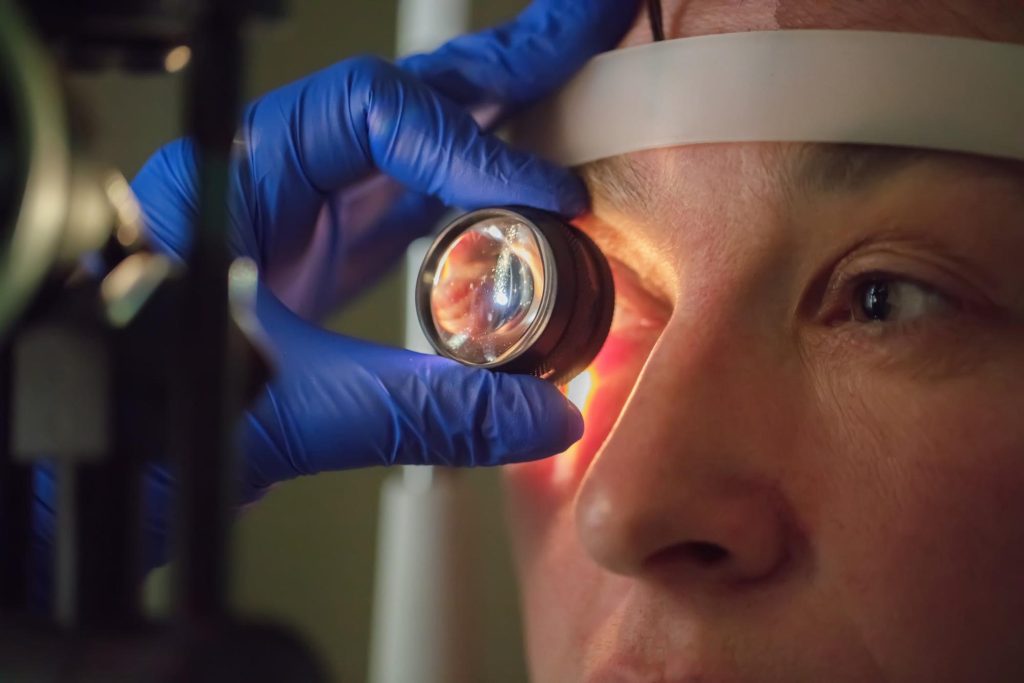Introduction to Implantable Contact Lenses (ICL)
Implantable contact lenses (ICL) are an advanced vision correction solution that involves surgically placing a flexible lens inside the eye. Unlike traditional external contact lenses, ICLs provide permanent vision correction without requiring daily wear or cleaning. Ideal for individuals who are not candidates for laser eye surgery like LASIK, ICLs preserve corneal tissue and offer excellent night vision, built-in UV protection, and compatibility with active lifestyles.
Types of Implantable Contact Lenses
Depending on the patient’s refractive needs, two main ICL types are available:
- Implantable Contact Lenses (ICL): Suitable for correcting short-sightedness (myopia) and long-sightedness (hyperopia)
- Toric ICLs: Designed to address astigmatism in addition to myopia or hyperopia.
These lenses can correct mild to severe refractive errors. After a thorough evaluation of your eye health and vision requirements, your eye specialist will recommend the most suitable lens type.
The ICL Eye Surgery Procedure
ICL surgery is a minimally invasive outpatient procedure:
- A small incision is made in the cornea.
- The folded lens is inserted using a special device.
- The lens is gently positioned behind the iris and in front of the natural lens.
The procedure takes approximately 15–30 minutes, with most patients noticing clearer vision within days.
Key Considerations Before ICL Surgery
Before undergoing ICL surgery, consider the following:
- A comprehensive eye examination is necessary to ensure suitability.
- Not suitable for individuals with certain eye conditions like glaucoma or cataracts.
- Be aware of potential risks: infection, inflammation, increased eye pressure, or rare follow-up procedures.
- Some patients may require reading glasses after surgery, depending on their age and vision needs.
- Consider the cost and whether insurance or financing options are available.
Choosing surgeons with extensive experience in implantable contact lens surgery is essential to minimise risks and ensure optimal outcomes.
Benefits of ICL
ICLs offer numerous advantages:
- Sharp, high-definition vision — often with better night vision.
- Built-in UV protection.
- No daily cleaning or maintenance.
- Especially beneficial for those with dry eyes or intolerance to external lenses.
- Preserves corneal structure, making it ideal for patients with thin corneas or high refractive errors.
ICLs are designed to improve eyesight for many patients, addressing issues such as blurred vision and refractive errors. Patients find that the procedure improves quality of life and vision, often noting the ease of recovery and positive changes in daily living.

Comparing Contact Lens Options
Here’s a quick comparison:
- Traditional Contact Lenses: Non-surgical, removable, and require regular maintenance.
- ICL: Surgically implanted, permanent, maintenance-free, ideal for an active lifestyle or high prescriptions.
Your choice will depend on your lifestyle, vision needs, and personal preference. Always consult your eye specialist for professional advice.
Aftercare and Recovery
The recovery time after ICL surgery is fairly short, with most patients able to resume normal activities within a few days. For a smooth recovery:
- Use prescribed eye drops as directed to aid healing and prevent infection.
- Avoid rubbing your eyes and refrain from strenuous activities for several days.
- Attend all follow-up appointments to monitor healing and lens position.
Risks and Possible Complications
While generally safe, ICL surgery carries potential risks, including:
- Infection
- Glare or halos at night
- Increased intraocular pressure
- Need for additional procedures in rare cases
An experienced surgeon and proper post-surgery care significantly reduce these risks.
Cost and Insurance
The cost of ICL surgery can vary based on the clinic, surgeon’s experience, and lens type. While some insurance plans may offer partial reimbursement, many patients consider financing options for affordability. The long-term benefits often justify the investment.
Choosing the Right Surgeon
A successful ICL outcome depends greatly on the surgeon’s expertise. Look for:
- A surgeon with a proven track record in ICL procedures.
- Positive reviews or testimonials from previous patients.
- Clear communication and a willingness to answer your questions.
Selecting an experienced and trustworthy surgeon ensures a safe procedure and the best possible results.
Comprehensive Eye Health Evaluation
Before surgery, a detailed eye health assessment ensures:
- You are a suitable candidate for ICL.
- Any pre-existing conditions are identified and addressed.
This step is essential for achieving the best possible surgical outcome.
Technology and Innovation: EVO ICL
The EVO ICL represents the latest innovation in vision correction. Designed for safety and comfort, this next-gen lens provides effective refractive error correction without altering the corneal structure, offering a minimally invasive and efficient surgical experience.
Lifestyle Benefits
Patients who choose ICL often enjoy:
- Freedom from glasses or daily lenses.
- Better comfort during sports and outdoor activities.
- Improved confidence and quality of life.
- Reduced dry eye symptoms, unlike some other vision correction procedures, because ICL surgery does not disrupt corneal tissue.
ICL surgery offers a long-term solution that supports active and vibrant living.
Conclusion
ICL surgery is a transformative solution for those seeking permanent vision correction, especially for patients with high prescriptions or unsuitable for laser procedures. By preserving the eye’s natural structure and delivering clear vision, ICLs provide a safe, comfortable, and lasting improvement to eyesight.
With the support of an experienced surgeon and proper aftercare, patients can look forward to a smooth recovery and a glasses-free future, making ICL a smart, life-enhancing investment in your visual freedom.



